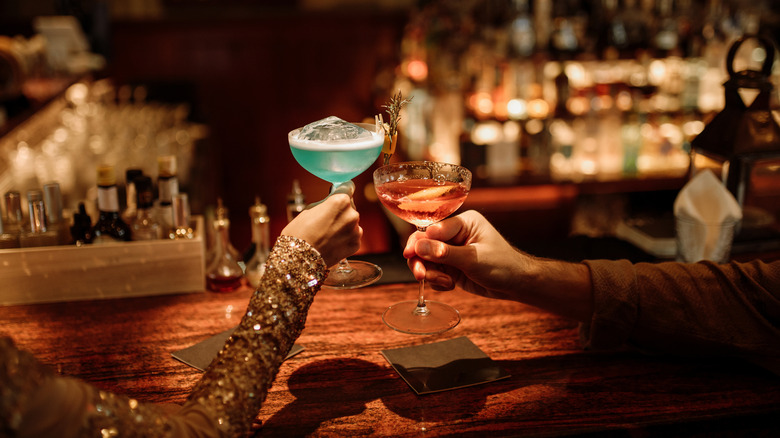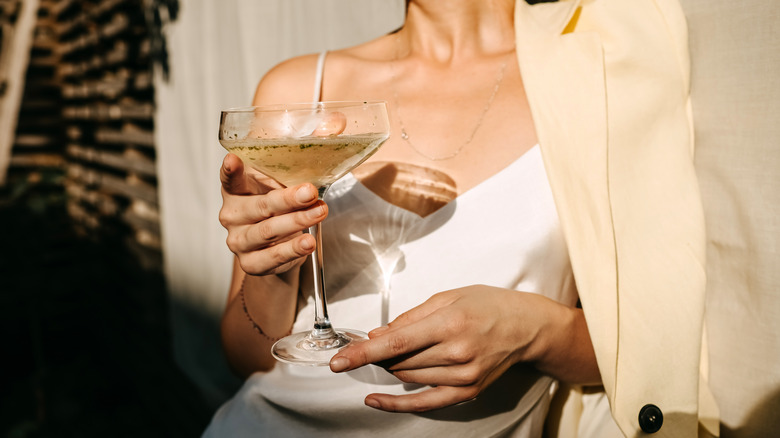The Feminist History Of Cocktail Parties
When you accept your next invitation to a cocktail party, you may want to toast Ms. Clara D.D. Bell Walsh, who is often credited with having invented it. But while Walsh wasn't the first person to ever host a cocktail party, the idea of an event at which alcoholic beverages are served being held on a Sunday afternoon was novel enough to warrant media attention in 1917.
Firmly established within St. Louis' upper echelon, Walsh created her own version of afternoon tea, offering cocktails in a sophisticated environment while cementing her place as a social celebrity. Walsh was wealthy, liked horses and parties, and probably met bartender Tom Bullock at the local country club, for several of the drinks found in Bullock's book "The Ideal Bartender" were served at Walsh's gatherings.
Prior to Walsh's events, drinking women were frowned upon, with wives expected to prepare the beverages for their husbands but not partake in them themselves. One 1860 etiquette guide offered suggestions for ways that women could refuse offers of alcohol since gracefully declining a proffered drink meant conscientiousness and the avoidance of folly. Manuals provided homemakers with punch and cocktail recipes, and advertisements for cocktails catered to male audiences since these drinks were thought to overpower the fragile sensitivities of women. Though marketing efforts tried to change this perception, society had a tough time accepting that good women could, in fact, enjoy a good drink.
Persistence beats resistance
Actor Lillie Langtry's 1903 cocktail party was lambasted by temperance supporters, and cocktails served at dance halls and cabarets were described as "insidious." In a Tacoma Times article published in 1913 (via "The Feast"), social clubs that held "tea parties with cocktails on the side" while women played bridge and gambled were labeled "horrid" and "shameful." Regardless of the public outcry, women persisted, and drinks were shaken, stirred, served, and sipped.
Although cocktails grew in popularity, the women who indulged in them were considered rebellious and linked to activists like suffragettes, who fought for voting rights and demonstrated freedom of thought. As Prohibition came and went, the cocktail party lived on, and in a 1974 article in Esquire, writer Alec Waugh claimed that he invented the practice when he served predinner daiquiris to guests in 1924. No matter who was the first to think of the stellar combination of cocktails, canapés, and merriment, however, we celebrate the cocktail party's longevity.

